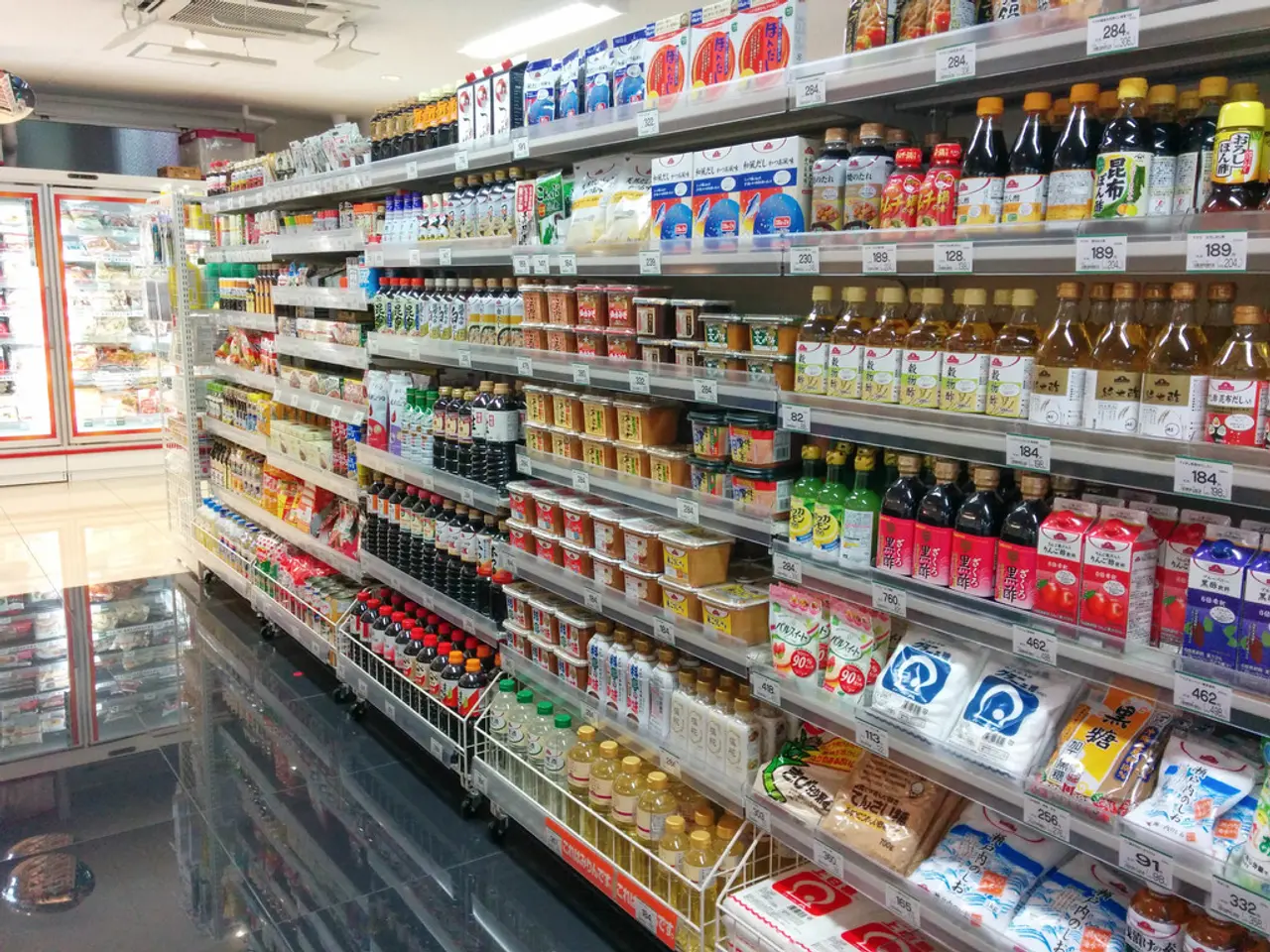Trade conflict instigated by Trump disrupts worldwide financial system
In the ever-evolving landscape of international trade, President Donald Trump's tariff policies have left a significant mark. Since 2025, these policies have reshaped global markets and economies, introducing uncertainty and tension that continues to ripple across the globe.
## Uncertainty and Tension in Global Trade
Trump's tariff policies have introduced high levels of uncertainty into global trade, making businesses hesitant to invest in long-term projects due to unpredictable trade conditions. This uncertainty has strained international relations, leading to retaliatory measures and disruptions in global supply chains. Developing economies, particularly those that rely on exports to the U.S., have been hit hard, experiencing economic instability as a result.
The imposition of tariffs on major trading partners like China and Japan has led to a tit-for-tat trade war, with countries imposing reciprocal tariffs on U.S. goods. This has increased costs for businesses and consumers worldwide and contributed to economic instability.
## The U.S. Dollar: Strength and Weakness
The U.S. dollar might experience short-term strength due to increased tariffs, as foreign investors seek safe-haven assets during times of economic uncertainty. However, prolonged trade tensions and economic instability can weaken the U.S. dollar in the long term. Sustained trade deficits, potential inflation due to higher import costs, and decreased investor confidence can erode the dollar's value against other currencies.
Moreover, the unpredictability of Trump's tariff policies introduces volatility into foreign exchange markets, making it difficult for investors to predict currency movements and affecting trade and investment decisions.
## The Impact on Global Markets
Trump's economic nationalism has encouraged companies to relocate their operations to the United States, supported by tax incentives and deregulation efforts. This has boosted sectors like domestic manufacturing and energy, while hurting industries that rely on imported materials.
The "Magnificent Seven" tech giants lost $2 trillion in value due to tariffs, and the S&P 500 lost approximately $4.7 trillion in market value due to tariff-related announcements. Global GDP could decline by up to 1% due to reduced trade and investment, according to JPMorgan Research.
European markets have experienced a resurgence as investors seek stability outside the U.S. due to increased market volatility caused by trade wars. The focus on deregulation and tax cuts in the U.S. has made it more challenging for developing countries to compete, as they struggle to attract investment and maintain economic growth.
In conclusion, Trump's tariff policies have had a profound impact on global markets, trade patterns, and developing economies. The overall impact remains tied to the broader themes of uncertainty and trade tension, with the future of global trade still uncertain as these policies continue to evolve.
[1] "Trump's Trade War and Its Impact on the Global Economy," The Guardian, 2025. [2] "The Effects of Trump's Economic Nationalism on Global Markets," The Economist, 2025.
- The real estate market has seen fluctuations due to changes in business conditions caused by Trump's tariff policies, with some sectors benefiting from the relocation of operations to the United States, while others struggle with increased costs and instability.
- The unfolding trade disputes have spurred general-news coverage, with many news outlets extensively reporting on the various retaliatory measures, business responses, and economic effects of these policies.
- The financial sector has been affected by the unpredictability of Trump's tariff policies, with some investors seeking stability in European markets due to increased volatility in U.S. markets.
- The complexities of global politics have intertwined with business relationships, as countries navigate the challenges posed by tariffs, potentially reshaping alliances and diplomatic ties in the process.




